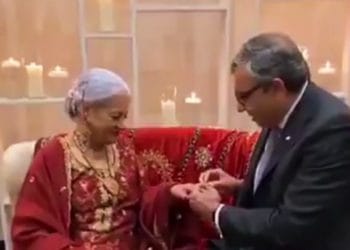The tradition of marrying close family members or relatives prevails in many countries across the globe and Pakistan tops the list of these countries. The tribal and conservative mindset is so deeply rooted in our country, that some families would rather have their children unmarried than marrying them out of their castes and tribes, let alone families. They think that keeping it in the family will keep their resources in the families too. Some think that cousin marriages would fortify their family bond when that is not the reality anymore as such marriages often lead to irreparable family feuds resulting in separation and divorces.
It comes as no surprise that these consanguine marriages or cousin marriages are at a staggering 73 percent in the country. According to Pakistan Demographic and Health Survey 2017-2018, cousin marriages between relatives as reported by ever-married women aged 15-49 is common. 29% of women marry first cousins on their father’s side and 21% marry first cousins on their mother’s side. As regretful and unhealthy this practice is now considered, it is often represented casually in Pakistan’s daily television dramas like Humsafar and Suno Chanda who have garnered massive success amongst their audiences.
The most alarming scenario springing up from cousin marriages are mental and physical disabilities and most importantly the genetic disorders that come with it. Genetic risk is higher among children of parents who are closely related and these marriages are leading to a string of genetic disorders in their off springs. The number of people suffering from these genetic diseases is estimated between 14-16 million while 1.6 million mutations have been found in Pakistan. Our country also inhabits the largest community of deaf children. Moreover, child mortality rate has been higher for women married to cousins than those married to others.
Prof Dr Arndt Rolfs, a German scientist and multi-entrepreneur in biotech presented these findings at the occasion of 70 years of Pakistan and Germany’s diplomatic relations. Saadia Salahuddin, the Assistant Editor of The News, Lahore who was present at the event recently published these findings in an article.
According to Dr. Rolfs, more than 55,000 patients need immediate treatment and he has diagnosed more than 15,000 patients with genetic diseases in Lahore alone. Moreover, metabolic diseases are more frequent than one in 2000. The diagnosis that cost $15,000 earlier now costs $5,000 and will cost $100-120 in the coming time where as there are diseases that can be treated in less than $5.
Stressing on the importance of early diagnosis, he added that patients have to pay for these tests in Pakistan and that they are burdened by a delay in diagnosis for six to eight years.
56% of marriages are between first cousins in Israel however there is now a decline in consanguine marriages there since their Rabbis stopped giving them their blessings. Countries like Egypt and Saudi Arabia are fighting this practice through education and awareness. As societies progress, Pakistan can too fight this menace and stop genetic disorders through awareness and an open minded approach.













